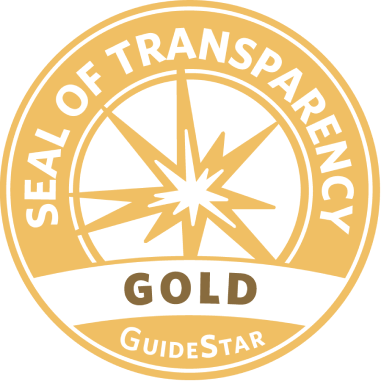Trauma, especially among women and girls in conflict-affected regions, is a profound barrier to personal and societal progress. For many, it disrupts their sense of self, their relationships, and their ability to envision a future. In such challenging contexts, education emerges not only as a tool for empowerment but also as a means of healing. The Omid Foundation has crafted a unique approach to address trauma by intertwining education and emotional support, transforming the lives of countless women.
This article delves into Omid’s trauma-informed educational model, its impact, and why education is crucial in fostering healing and resilience.
The Link Between Trauma and Education
Trauma affects how individuals learn, process information, and connect with others. For women and girls who have experienced abuse, violence, or systemic oppression, education often becomes a distant dream. Many lose trust in authority, struggle with self-esteem, or feel unable to navigate the structured demands of traditional learning environments.
However, education holds transformative power:
- Restoring a Sense of Control
Learning new skills and gaining knowledge helps individuals regain a sense of autonomy and agency over their lives.
- Building Community
Educational spaces foster connection and camaraderie, helping individuals rebuild trust and feel supported.
- Fostering Hope and Purpose
Education equips learners with tools to imagine and create a brighter future, shifting their focus from past pain to future possibilities.
The Omid Foundation understands this connection deeply and has designed its programs to address the specific needs of trauma survivors.
Omid’s Trauma-Informed Educational Model
Omid’s approach to education is rooted in understanding the unique challenges faced by women and girls who have endured trauma. The foundation integrates trauma awareness into every aspect of its programs, ensuring that learning becomes a pathway to healing.
- Creating Safe and Supportive Spaces
Safety is a cornerstone of Omid’s model. Women who have faced violence or oppression need environments where they feel physically, emotionally, and psychologically secure.
Non-Judgmental Environments: Omid’s classrooms and counseling spaces are designed to be welcoming and free of judgment, encouraging participants to express themselves openly.
Empathy-Led Instruction: Educators and staff receive training in trauma awareness, enabling them to interact with learners with sensitivity and understanding.
- Holistic Learning
Education at Omid goes beyond traditional academics. The foundation integrates life skills, vocational training, and mental health support into its curriculum.
Life Skills: Courses in communication, conflict resolution, and decision-making empower women to navigate life’s challenges with confidence.
Vocational Training: From language classes to entrepreneurship programs, Omid equips women with marketable skills that lead to financial independence.
Mental Health Support: Counseling sessions, group therapy, and mindfulness practices are woven into the educational journey, helping participants process their trauma.
- Fostering Self-Esteem and Confidence
For many women, trauma erodes their sense of self-worth. Omid’s programs focus on rebuilding this:
Celebrating Achievements: Whether it’s mastering a new skill or completing a course, every milestone is celebrated to reinforce a sense of accomplishment.
Personalized Attention: Educators and counselors work closely with participants to address their unique strengths and challenges.
- Encouraging Creative Expression
Art and creativity play a vital role in Omid’s trauma-healing approach. Artistic outlets provide women with non-verbal ways to process emotions and tell their stories.
Art Therapy: Painting, drawing, and sculpture allow participants to explore their feelings and communicate experiences they may struggle to verbalize.
Storytelling and Writing: Creative writing workshops encourage women to share their narratives, reclaiming their voices and identities.
Success Stories: Transformation Through Education
Omid’s trauma-informed educational approach has empowered countless women to reclaim their lives.
Farah’s Journey
Farah, a survivor of domestic abuse, came to Omid feeling lost and broken. Through counseling and life skills training, she regained her confidence and enrolled in a vocational program. Today, Farah runs her own small business, providing for her family and mentoring others in her community.
Sara’s Voice
Sara had always loved writing but felt silenced by years of systemic oppression. At Omid, she participated in storytelling workshops that helped her process her pain and find her voice. Her essays have since been published in local outlets, inspiring other women to speak up.
Laila’s Leadership
Once hesitant to even attend group classes, Laila now leads workshops on conflict resolution and empowerment. Her journey from trauma survivor to community leader exemplifies the transformative power of education.
Why Omid’s Approach Works
Omid’s success lies in its understanding that education is not a one-size-fits-all solution. The foundation’s tailored, trauma-aware programs address the complexities of each woman’s experience.
- Focus on Empowerment
Rather than seeing participants as victims, Omid views them as individuals with immense potential. This perspective fosters a sense of ownership and agency.
- Integrated Support
By combining education with mental health services and community-building activities, Omid addresses the multifaceted nature of trauma.
- Sustainable Impact
Women who complete Omid’s programs often go on to inspire and support others, creating a ripple effect of empowerment.
The Broader Impacts of Trauma-Healing Education
The benefits of trauma-informed education extend beyond individual participants:
Strengthened Families
Women who heal from trauma and gain education become pillars of support for their families, fostering healthier relationships and environments.
Community Transformation
Empowered women contribute to their communities as leaders, entrepreneurs, and advocates for change.
Breaking Cycles of Violence
Education equips women with tools to challenge systemic oppression and advocate for policies that protect and empower others.
The Role of Global Support
While Omid’s work is transformative, it cannot succeed in isolation. Global solidarity and support are crucial in sustaining and expanding its efforts.
Advocacy
Raising awareness about the importance of trauma-informed education can inspire other organizations to adopt similar models.
Funding
Financial support ensures that Omid can continue offering free or affordable programs to women in need.
Amplifying Voices
Sharing the stories of Omid’s participants helps to highlight the importance of trauma-healing education on a global scale.
Conclusion
The Omid Foundation’s approach to healing trauma through education is a testament to the resilience of the human spirit and the transformative power of learning. By addressing the emotional, psychological, and practical needs of women, Omid creates pathways to recovery, empowerment, and lasting change.
Education is not just about acquiring knowledge—it is about reclaiming agency, restoring hope, and rebuilding lives. With the continued support of partners, donors, and advocates, Omid can extend its impact, ensuring that more women have the opportunity to heal, thrive, and lead. Together, we can create a world where every woman has the tools to overcome trauma and realize her full potential.

